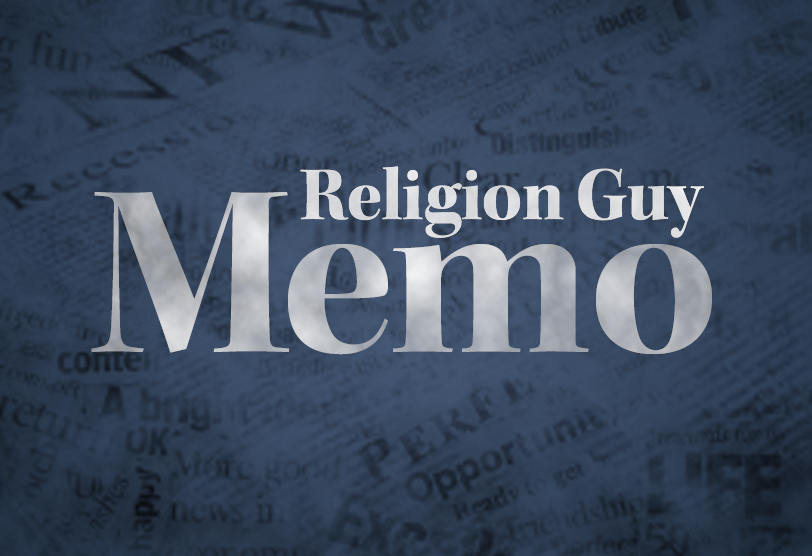Newsworthy poll numbers from ABC News and The Washington Post, which combine 5,017 interviewees during 2017, say self-identified “evangelical or born again” white Protestants have slumped to a mere 13 percent of U.S. adults. That compares with 21 percent for “nones” who lack any religious affiliation.
“Americans With No Religion Greatly Outnumber White Evangelicals,” New York magazine’s headline proclaimed. If so, that would be political dynamite due to evangelicals’ importance for the Republican coalition and Democrats’ growing dependence on “nones.”
Now, let's be skeptical for a moment -- like journalists.
Mysteriously, 13 percent is well below counts in other recent polls, so journos ought to dig into whose numbers are best and why.
The 21 percent for “nones” closely tracks other surveys. However, two experts would argue that the “With No Religion” claim in the hed above is misleading. They are Todd Johnson and assistant Gina Zurlo who lead the Center for the Study of Global Christianity (CSGC), at Gordon-Conwell Theological Seminary in Massachusetts. Zurlo is also a researcher with Boston University’s Institute on Culture, Religion and World Affairs.
In the 2016 academic compendium “Sociology of Atheism,” Zurlo and Johnson spent 24 pages analyzing “nones.” One main point was that in the U.S., at least, those who list no affiliation or call their religious identification “nothing in particular” often hold to beliefs or practices -- only minus membership. They include “spiritual but not religious” seekers and young free-floating evangelicals who shun institutional commitments.
The key: This article distinguishes between the unaffiliated and fully non-religious atheists and agnostics. It also explains pitfalls in overseas polling.
Johnson, Zurlo, and other CSGC colleagues are a go-to source for religious statistics that are used in standard reference works, and for interpretation of them. Their regularly updated World Christian Database, newly spiffed up this year, exploits every imaginable source for past, present and future numbers for each religious and ethnic group in 234 nations and territories, alongside ample backgrounding. This and other unique material will be compiled in the forthcoming third edition of CSGC’s World Christian Encyclopedia, which belongs in every newsroom library.
Now, here's another typical quandary writers face: How many U.S. Muslims are there?
A 2013 article by The Religion Guy noted that numbers have ranged from 877,000 (National Survey of Religious Identification, 1993) to 9,000,000 (certain Muslim promoters). Queried for this article, Johnson estimates 4.4 million as of 2015. (Higher numbers than that often mistakenly include Christians with Arab surnames.) He also counts 4 million U.S. Buddhists and 1.5 million Hindus.
Subscriptions to access CSGC's full Database cost $2,672 from Brill.com, beyond the budgets of many news shops.
Fortunately, CSGC is willing to provide reporters its numbers and interpretation without charge. Contacts: info@globalchristianity.org or 978–468-2750. Guilt tripping note: Donations are needed to keep this invaluable center afloat.
Then there’s this: Starting in 1916, the National Council of Churches and its predecessor council compiled annual yearbooks with U.S. denominations’ own statistical reports, later adding Canadians. This essential resource disappeared in 2012 due to the NCC's sharp financial decline.
Newswriters should know that the task is now taken up by the Association of Statisticians of American Religious Bodies. It posts, free and online, the best available numbers for 455 denominations from both 2012 and 2016 here. A print version may appear later.


